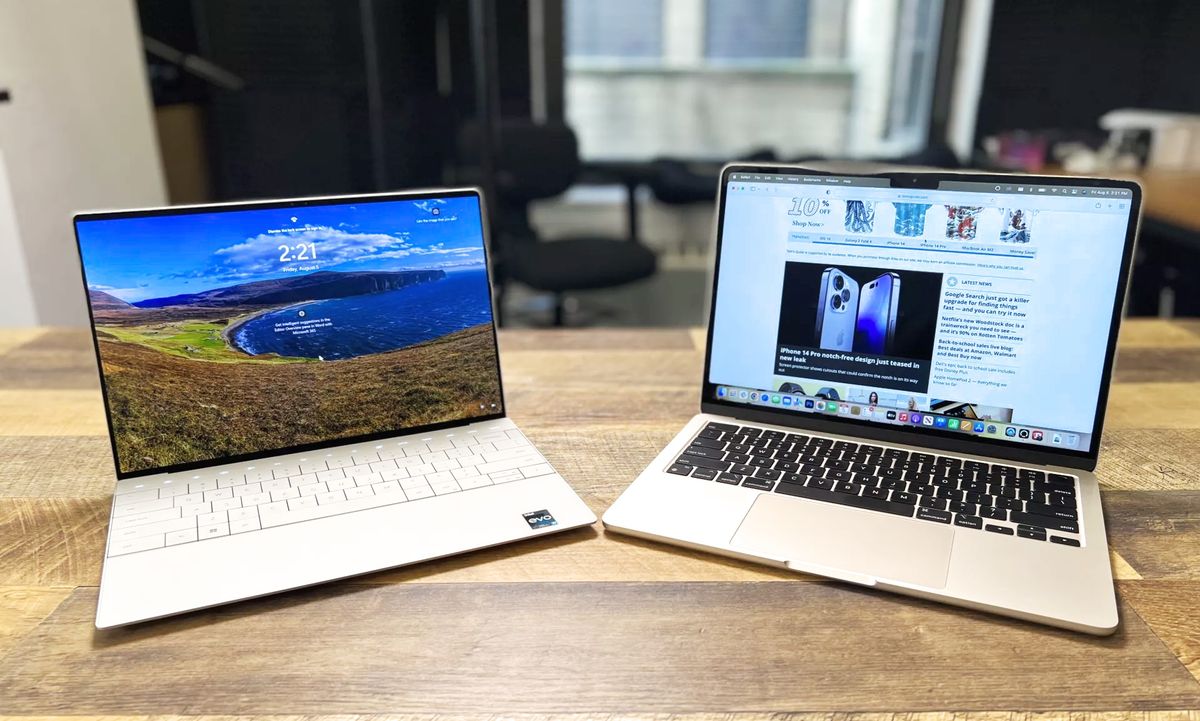
The Ultimate Guide: Finding the Perfect Laptop Screen Size for You!
Key Takeaways:
Are you in search of a new laptop, but struggling to decide on the perfect screen size? With so many options available in the market, choosing the right laptop screen size can be a daunting task. However, fret not! In this ultimate guide, we will break down the key factors to consider when finding the perfect laptop screen size for you. So, let’s dive in and explore the world of laptop screens!
The Importance of Choosing the Right Laptop Screen Size
Your laptop screen might just be one of the most vital components of your device. It not only defines your visual experience but also affects your productivity and comfort. Hence, it’s crucial to choose a laptop screen size that aligns perfectly with your needs and preferences.
Let’s take a look at two significant aspects to justify the importance of the right screen size – usage and portability.
Usage
Your laptop screen size has a direct impact on your overall user experience. Whether you’re a student, professional, gamer, or casual user, the screen size you choose can significantly enhance or hinder your usage.
If you primarily use your laptop for watching movies, video editing, or gaming, a larger screen size, such as 15 inches or more, provides a more immersive experience. The bigger display allows you to enjoy high-definition visuals in all their glory. On the other hand, if you focus more on tasks like browsing the internet, writing documents, or using software applications, a smaller screen size of around 13 inches may be sufficient.
Portability
If you frequently travel or need your laptop to be highly portable, screen size plays a key role in determining its overall weight and dimensions. Bigger screens typically add bulk and weight to your device, making it more challenging to carry around. On the other hand, smaller screens offer better portability and a compact form factor.
Now that we understand the significance of choosing the right laptop screen size, let’s delve into the factors to consider when making this important decision.
Finding the Perfect Laptop Screen Size: Factors to Consider
1. Purpose of Usage
The first step in determining your ideal laptop screen size is to consider your primary purpose of usage. Are you mainly using your laptop for productivity tasks, creative pursuits, or entertainment purposes?
If productivity is your main focus, a larger screen provides a spacious workspace and reduces the need for constant scrolling. However, keep in mind that a larger screen might sacrifice portability.
Alternatively, if you’re a creative professional working with graphic design, video editing, or photography, a larger screen with a higher resolution can significantly enhance your workflow and precision. In this case, investing in a laptop with a 15-inch or 17-inch display can be a wise decision.
On the other hand, if your primary usage revolves around consuming media, browsing the internet, or casual tasks, a smaller screen size of around 13 inches or 14 inches should suffice. This smaller size offers increased portability without compromising too much on display quality.
2. Portability Needs
Assessing your portability needs is another vital factor when choosing a laptop screen size. Portability depends on your lifestyle, travel frequency, and how often you need to carry your laptop with you.
If you’re constantly on the move, whether it’s for work, study, or leisure, portability is likely a priority. In such cases, opting for a laptop with a smaller screen size, typically ranging from 11 inches to 14 inches, is recommended. These laptops are more lightweight and compact, making them easier to carry in your bag without weighing you down.
However, if your laptop mostly remains stationary, and you prioritize a larger screen for better multitasking and visual experience, you can focus on devices ranging from 15 inches to 17 inches. These laptops offer a more comfortable viewing experience with larger text and images.
3. Visual Comfort
The level of visual comfort provided by your laptop screen is closely related to the screen size and resolution. If you spend long hours working or gaming on your laptop, eye strain can become a significant concern.
For those who require a large amount of screen real estate to display multiple windows or applications simultaneously, a larger screen with higher resolution is a must. This prevents the need for excessive scrolling or squinting to read small text. It’s better for your eyes and contributes to better productivity.
Additionally, a display with an appropriate aspect ratio can also enhance visual comfort. Most laptops come with a 16:9 aspect ratio, which provides a widescreen experience suitable for watching movies or gaming. If you work extensively in spreadsheets or require a taller display, you might consider a laptop with a 3:2 aspect ratio.
4. Budget Constraints
While we strive for the perfect laptop screen size, budget constraints are always a factor to consider. The price of a laptop increases with screen size and additional features.
Generally, smaller laptops with screens ranging from 11 inches to 14 inches are more affordable compared to their larger counterparts. If cost is an important consideration for you, sacrificing some screen real estate might be necessary to meet your budget.
However, it’s essential to strike the right balance between screen size and your other requirements. Determine your must-have features, weigh their importance against the price, and select a laptop that fits within your budget while satisfying your needs.
Frequently Asked Questions
Conclusion
Choosing the perfect laptop screen size is a personal decision that depends on your specific needs and preferences. It’s essential to strike a balance between screen real estate, portability, and your budget. By considering the purpose of usage, evaluating your portability needs, ensuring visual comfort, and considering any budget constraints, you can find the ideal laptop screen size that maximizes your user experience and boosts your productivity. Happy laptop shopping!
Source: insidertechno.com